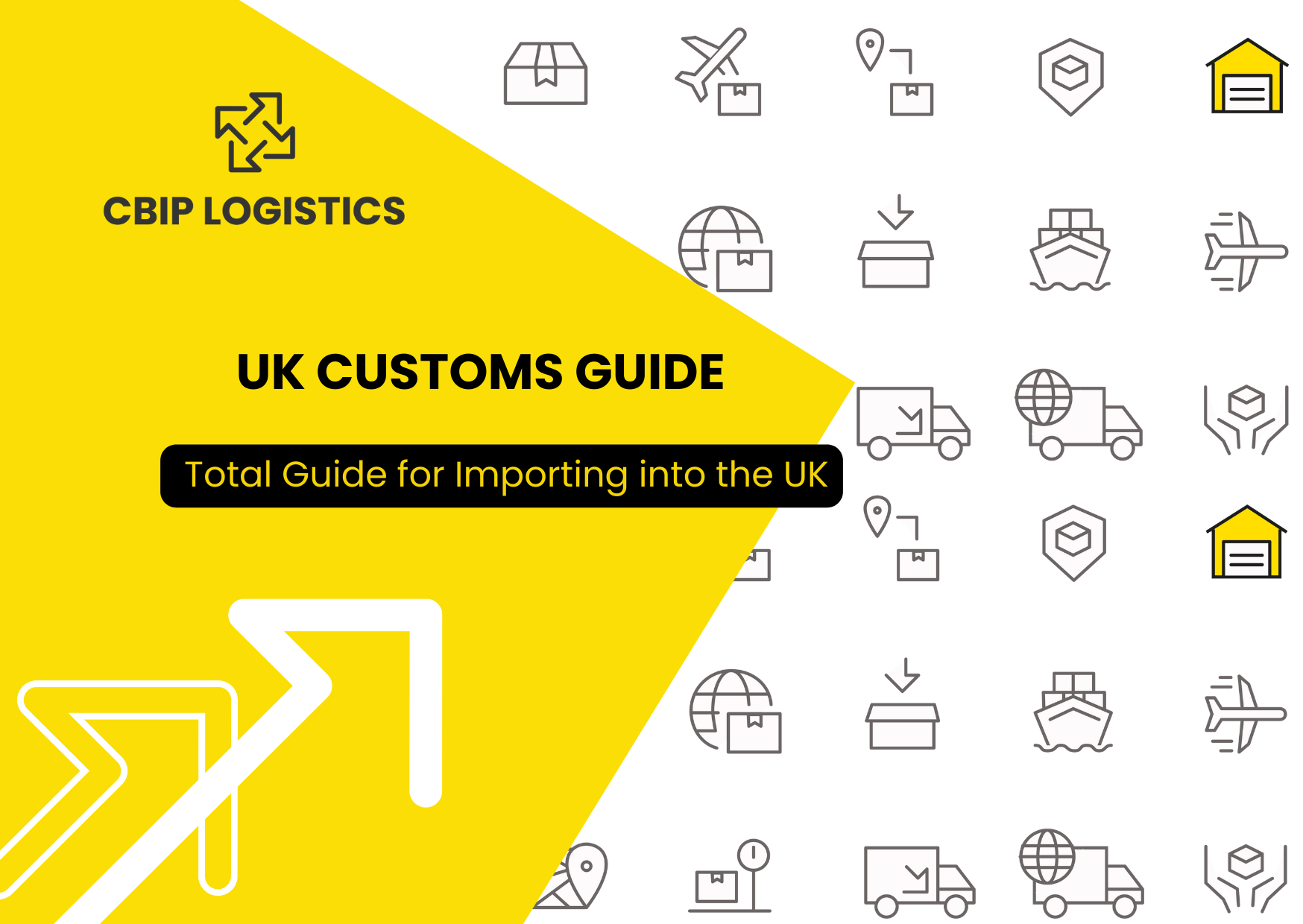Clearing UK Customs: Our Guide on Importing into the UK

Table Of Contents
- UK Customs Steps
- Step 1: Get a UK VAT number
- Step 2: Get a UK EORI number
- Step 3: Negotiate the incoterms with your buyer
- Step 4: Get the proper documents together
- Step 5: Get the proper labels and licenses if needed
- Step 6: Complete a customs declaration and pay your taxes
- Partner up with an international freight forwarder that can handle all aspects of your logistics
In 2022, an estimated 22% of e-commerce shipping was from cross-border shipments. That means that around one-fifth of e-commerce shipments were imported into another country last year.
While cross-border e-commerce has grown in volume, it is still a challenge to manage and maintain, particularly for e-commerce companies that don’t have prior experience importing. For those importing into the UK, the typical worries are often related to logistical issues and red tape.
However, the way to get through all of the customs requirements unscathed is to be very well-prepared with the right documents and certifications. To help you out, we’ve put together a simple, step-by-step guide, along with some of the most important links you will need.
Read about CBIP's Adaptable 4PL Logistics Services
UK Customs Steps
Step 1: Get a UK VAT number
For step number one, you’ll need to go to the UK’s customs site and register for VAT on their portal.
This step is mandatory for every foreign business looking to import into the UK. You will need to use this number on all of your invoices (prior to getting this number, you can estimate the VAT tax).
Step 2: Get a UK EORI number
Remember, this is not the same thing as any existing EU EORI you may have. You will need your EORI number at different stages throughout the customs process, for instance, when you make your customs declaration, so it’s important to figure out what it is early in the game.
Step 3: Negotiate the incoterms with your buyer
The incoterms are important agreements you make with your buyer that outline who is responsible for what processes and payments regarding the customs process.
Some of the items outlined in the incoterms include:
- Who pays the import taxes/ duties
- Who pays for things like insurance
- Where the goods will be delivered
- Who oversees the customs process
There are a variety of different types of incoterms depending on what you and your buyer need. Make sure that you understand what you are agreeing to very well before beginning the importation process.
Step 4: Get the proper documents together
Most businesses hire out for this, but it is possible to do this step on your own as a foreign business— provided you have the right training and a CHIEF certification.
Typically, businesses importing into the UK will use a freight forwarder or customs agent/broker to get the job done right. There are plenty of different options when it comes to freight forwarders, or whatever provider type helps you with your customs process.
For those of you wondering if you need a freight forwarder, that depends on how much work you and your team are willing to do. In general, we’d recommend you have one to avoid holdups at customs.
What documents do you need?
Red tape is one of the main culprits for trouble importing into the UK. Make sure you have all of the documents in the first list properly filled out, and make sure you know whether you will need any of the optional documents in the second list.
You will need:
- Bill of lading/airway bill
- EORI number
- Packing list
- Commercial invoice
You may also need:
- Import license
- Certificate of origin
- Test certificates
- CE certification
Related: Where to Warehouse in the UK
Step 5: Get the proper labels and licenses if needed
Items requiring labels/licenses for import are typically foods, drugs, organic matter, etc.
You can check here to make sure that you have the proper labels and certifications for your imported products. Remember, failure to check this in advance may mean endless holdups at customs, plus customs storage fees.
Step 6: Complete a customs declaration and pay your taxes
You or your customs broker will need to make a customs declaration online. It is possible to do it yourself, but you will need to make an account on the official UK customs site, and you will need to complete the 50-box form using approved software.
Once that is done, you need to pay your import duty.
How to calculate UK import duty
Use gov.uk’s Trade Tariff Tool to look up your commodity codes based on your product and country of origin. That will give you your 10-digit code and your import duty rate.
Simply multiply the total value of your goods by that rate, and you have your estimated UK import duty responsibility.
Partner up with an international freight forwarder that can handle all aspects of your logistics
Taking on customs in a foreign country is not worth the hassle for most retailers. We want to make finding the right freight forwarder a breeze for you by suggesting ourselves at CBIP Logistics.
Actually, we are a lot more than just a freight forwarder; we design and manage your entire logistics operation worldwide, and consult with you as a trusted partner every step of the way.
If you are looking to import to the UK and want to make sure everything goes well at customs, give us a call.






